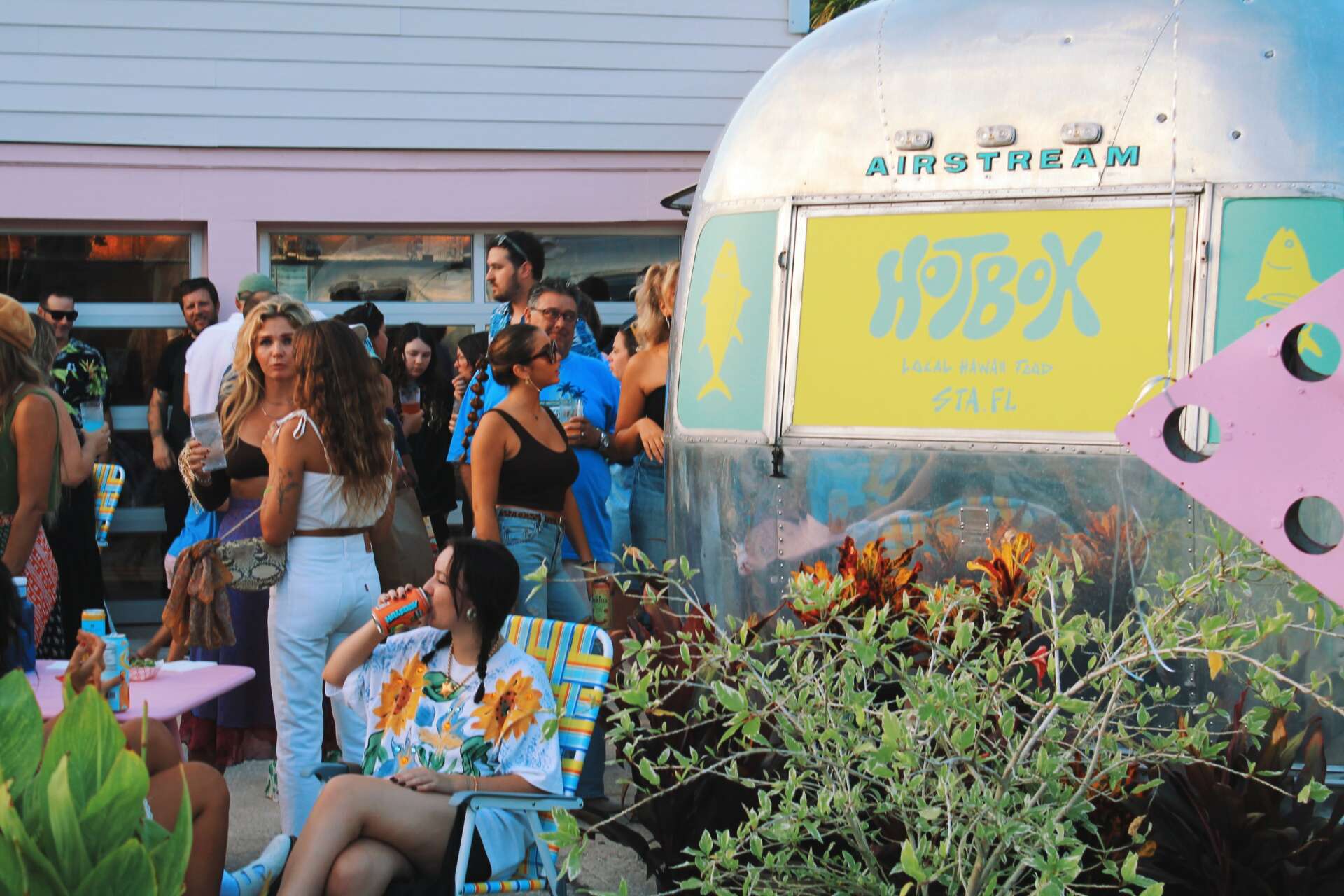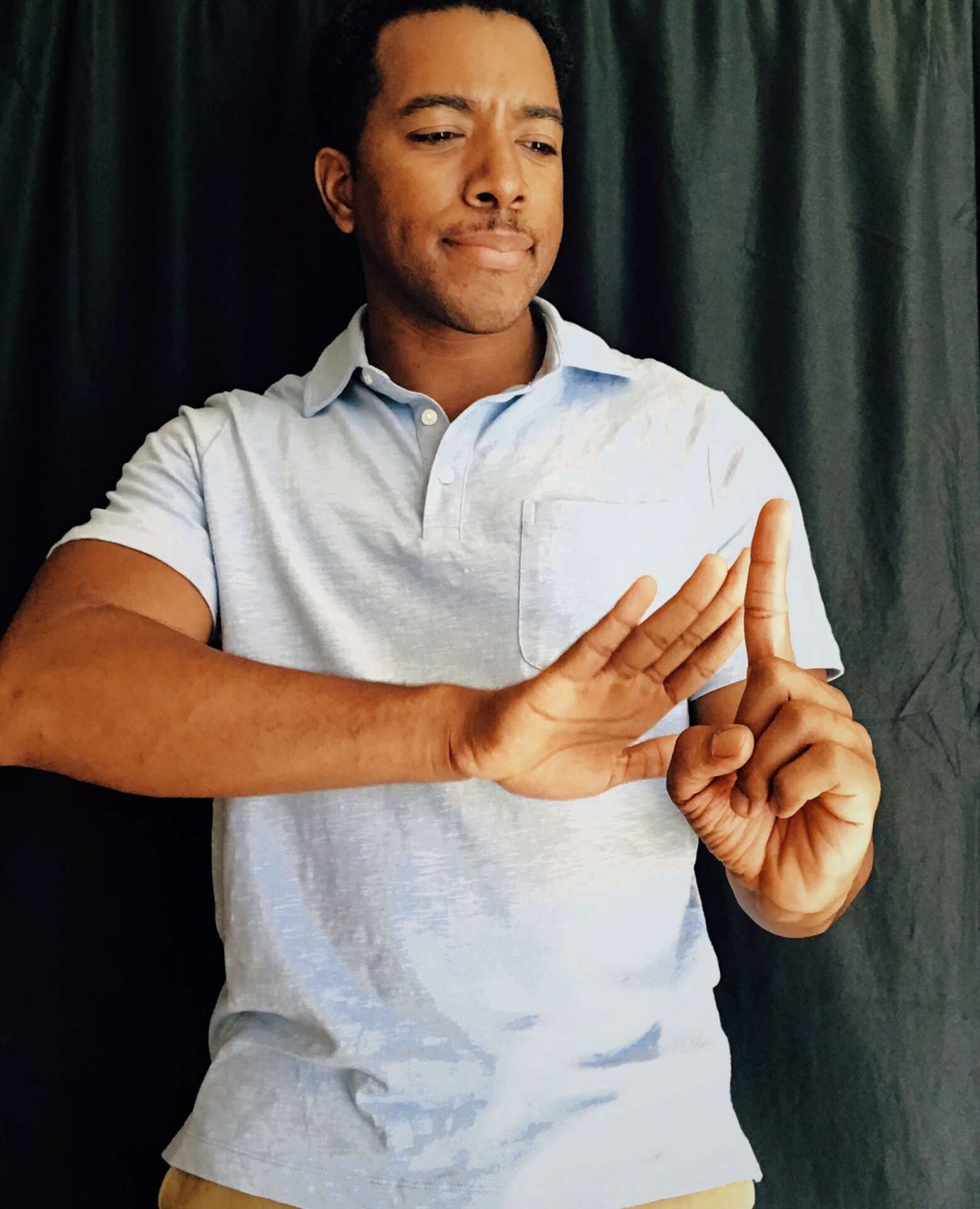Alright – so today we’ve got the honor of introducing you to Teddy Regis. We think you’ll enjoy our conversation, we’ve shared it below.
Teddy, appreciate you joining us today. Alright, let’s jump into one of the most exciting parts of starting a new venture – how did you get your first client who was not a friend or family?
In the summer of 2016, I started running a social media page (@thisancientcity) dedicated to my city’s local scene. It went hand in hand with the purchase of a domain (thisancientcity.com), where I create content about all things St. Augustine, FL. After attending events like local film screenings and fashion week, I’d write about the experiences in a whimsical, reflective way. I also started hosting a video podcast called Local Perspectives featuring interviews of some longtime local friends and acquaintances who are musicians, business owners and creatives. None of this is monetized. As a creative, my mind is constantly churning. Rather than let projects and ideas sit idly, it’s therapeutic to put them on paper, photograph them, or give voice to the inspiring people on my mind.
St. Augustine is the oldest continuously inhabited European settlement in the United States – also known as “the nation’s oldest city”. It is now 458 years old. Inspiration comes easy in a place teeming with history and architecture that makes you forget what year it is. Walking through the historic district and beaches never gets old. I often feel like I’m on vacation without leaving my area code.
Unfortunately, I have had my share of car accidents without leaving my area code, too. For example, I was rear ended in the fall of 2016. This was within a mile of my house. Many weeks thereafter were spent in the waiting room of my physical therapist. This is where I picked up an issue of a beautiful, glossy city magazine called St. Augustine Social. Even in the Internet age, this print publication shined brightly. It was thoughtfully designed with a layout that guided the eye. The local photographers they hired captured the essence of each story, and the contributing writers skillfully composed articles that elevated the publication’s status. As I flipped through the magazine, a blurb about contributing caught my eye. I emailed the editorial team a brief note with a link to my website; hoping to receive an invitation to write for them.
It pays to be patient. In the spring of the following year, I was sitting in an airport terminal bound for France during a 12 hour delay when St. Augustine Social’s managing editor emailed me to confirm my continued interest in receiving writing assignments. She had two projects waiting for me! I was thrilled. Receiving such good news on a stressful day of cancellations and missed appointments was special. I signed a contributor agreement – ecstatic that writing would now serve as a supplemental income stream.
Before videoconferencing was used by the masses, I conducted interviews with a business owner and a sea turtle patrol organizer using Google Hangouts. Doing all of this from an Airbnb in Lyon, France a full six hours ahead of eastern standard time made me feel like a full fledged journalist. I’m a firm believer in taking a portion of my home life with me when I travel. Tech makes it possible to keep working regardless of one’s location. So, even though life is more relaxed during travel, I feel a sense of purpose when I stay committed to pre-assigned work while far from home.
For the next three years, I got to interview musicians, environmentalists, a Newsweek correspondent…truly captivating people. Meeting the subjects in person to interview them was the most rewarding part of the work. Some of them invited me to their homes, others met me for coffee. It was all a reminder that human kindness is not dead, (and neither is print!) I have saved dozens of back issues as mementos of that pre-pandemic time.
There was a time when my personal life happened to overlap with my writing life. Let me explain. In early 2018, my brother and I were enrolled in an improv class. Meanwhile, St. Augustine Social was working on a feature called “We Tried It”. You’ll never guess which activity they tried. One night, when I came to class, we had special guests joining us: the magazine’s publisher, managing editor and photographer! I had already met the photographer and managing editor, but this was my first time meeting Heather, who co-founded and publishes the magazine. She and I partnered up for some light-hearted improv games. One involved long periods of direct eye contact, during which we’d repeatedly melt into hearty laughter.
Some years later, my improv teacher became managing editor of a business journal called Evolve Magazine. When she called to offer me writing assignments, I jumped on board right away. I enjoy writing for Evolve Magazine to this day.
You never know when and where you might cross paths with the people who came into your life in the distant or recent past. Writing has been a passion of mine since childhood. While mine has been a slow, modest climb – it’s incredibly gratifying to look back and take stock of how a creative outlet I pursued for my own healing became an income source.


Awesome – so before we get into the rest of our questions, can you briefly introduce yourself to our readers.
My brain has always been linguistically wired. Early in life, I decided to pursue things in line with this. So, I have always been someone who journals. I wrote for my school papers, and took creative writing classes in High School. I grew up speaking a lot of French with the help of my parents. As an adult, I became fluent in American Sign Language thanks to nine years of immersion in the deaf community. The time was spent engaging in a free Bible education program focused on the deaf community. ASL has a sentence structure that differs from that of English. It was always fascinating to me when communicating with deaf friends required me to reorganize English phrases in my head before producing them on my hands.
After four years of volunteering, changes started presenting themselves in my day job that motivated me to slowly begin accepting paid ASL interpretation assignments. Getting started was bewildering because there are no local laws that govern or regulate my line of work as an interpreter. I had to consult with friends who were already experienced practitioners to get started in a way that left me confident that I could navigate this often misunderstood profession with at least a little grace. With the help of these friends and countless free workshops, I took two pivotal exams specifically for interpreting in educational settings. I incrementally went from one assignment a week to a full time position in about a year’s time. Being included in educational teams of speech language pathologists, teachers and behavior modification specialists was incredibly rewarding. As an entourage of sorts, we were able to level the playing field for deaf kids who had unique obstacles on their path to independence and success. “It takes a village”, as they say.
Today, I am thrilled to say that after spending a small fortune on exam fees, mentorship and membership dues, countless hours studying and collaborating with those who came before me – I am now a nationally certified interpreter. So even in states where the law says you must hold such a certification, I can seamlessly enter the workforce if I so choose. It also qualifies me for expanded employment opportunities previously unavailable to me. Having worked in medical settings, conferences, and video relay offices – the most rewarding and heartwarming work for me has been in classrooms.


How about pivoting – can you share the story of a time you’ve had to pivot?
For sure. Shortly before I became an interpreter, I was working for a small family owned firm. It was my first commission based job. For a time, it was life changing. Thanks to that job, I was able to put a down payment on a house and enjoy financial independence. But in my third year there, things slowly took a turn. We encountered a number of clients who refused to pay our contingency fees. Taking legal action against them was often seen as a zero sum game for various reasons. In time, I was being paid behind schedule in a way that created a hardship for me. The cash flow troubles motivated me to start exploring opportunities as a sign language interpreter. Despite the awkward position I found myself in, I cared deeply for the family I worked for, and didn’t want to resign in haste. So for years, I did my best to continue working for them when my schedule allowed it. When enough money came in, they would pay me what they reasonably could, but they still got further and further behind. After years of this, I found myself at peace with the likelihood that we would never fully settle accounts. They are good people, so there were no hard feelings.
By the time the pandemic happened, I had been interpreting full time for over five years. One afternoon, the firm reached out to verify my mailing address with the promise to pay me the remaining balance owed to me. I was admittedly shocked to hear from them after all these years. Any skepticism on my part faded as photos of a cashiers check and USPS tracking information were forwarded. Later that week, I received a text notification that a shipment was waiting for me at the post office. I jumped in my car and headed straight for my mailbox before depositing the funds with a teller. Again – it pays to be patient!


We often hear about learning lessons – but just as important is unlearning lessons. Have you ever had to unlearn a lesson?
In the summer of 2021, I read a fascinating book entitled “What Happened to You?” It outlined various maladaptive behaviors that we pick up from childhood to cope with adversity. One of those maladaptive behaviors is people pleasing. Guilty as charged.
I wish I could say that I have completely unlearned this maladaptive behavior. As a child, I found the approval of adults intoxicating. For me, it signaled that I was a good person. It made me feel accepted and secure. This probably drove me to seek the approval of others at the expense of my own personal well being at times. Now that I have specific language and an origin story of sorts to explain this behavior, combating it has taken on new meaning. I have learned to love boundaries and simply say “no” to requests on my time, attention and energy that exceed my limitations. It has been said that “No.” is a complete sentence. Omitting an indulgent explanation for why I am unable to fulfill a request is still difficult for me personally. Still, I love this journey of doing what I observe many others do by politely communicating the sentiment of, “this far, no further,” so to speak.


Contact Info:
- Website: Thisancientcity.com
- Instagram: @thisancientcity
Image Credit:
@explorewithkohi


